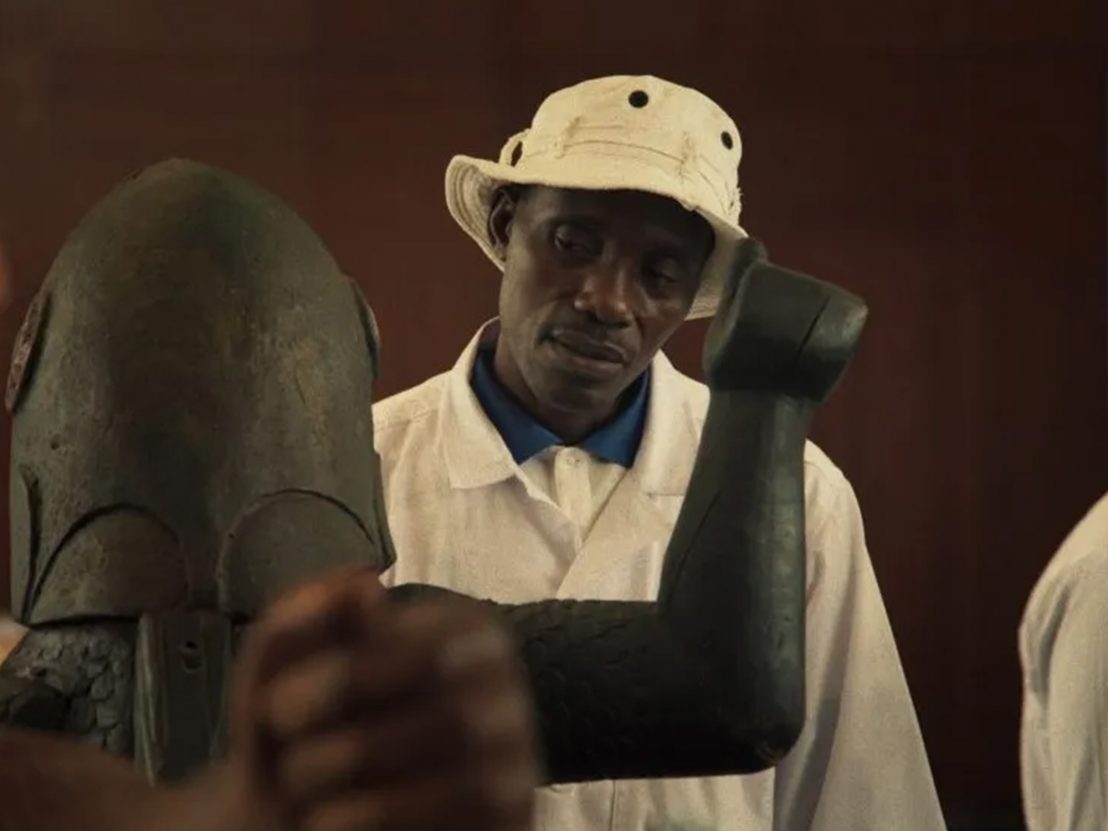
Mati Diop offers a creative and moving guide to discussing anti-colonialist action in her very fine follow-up to 2019’s Atlantics.
Splitting her working hours between acting and filmmaking, Mati Diop is a rare bird: a wonderful, intuitive and subtle screen performer who is also an incredible director and writer. Having cultivated her reputation via a series of rightly lauded short works, her feature debut, Atlantics, played in the competition at the Cannes Film Festival in 2019 and is now considered (again, rightly) to be one of the finest films of that decade.
She returns behind the camera for the extraordinary and lightly eccentric short non-fiction piece, Dahomey, something a little different formally but in many ways a companion pieces to Atlantics in that is, at its roots, about how things and people change when they move or are transplanted to foreign climes. Her lean, but extraordinarily detailed and carefully edited 67-minute film chronicles the return of 26 royal treasures to the kingdom of Dahomey in Benin that were plundered by French colonialists.
The film offers an implicit critique of museums as sites of inherent colonial celebration, but also stresses their importance when it comes to matters of education and disseminating national history and, by extension, a sense of civic pride. One of the many theories presented here, via a lively panel discussion by students of the University of Abomey-Calavi, is that working class oppression and low wages are the enemy of art and culture, and that theoretically they could and should operate with a more hand-in-glove approach.
But this is the mere tip of the iceberg when it comes to the relevance of this highly-symbolic journey, and the film avoids polemic and instead presents itself as informed and inquisitive blueprint for the ways in which we discuss anti-colonialist action.
Diop’s camera zeroes in on the minute details of how the treasures are transported and then eventually displayed in their rightful home. They are treated with the utmost care and attention, and there’s a tension that comes from seeing these precious objects being moved and placed in crates, lest they crumble before their homecoming is achieved.
Though Diop is measured when it comes to empathising with how people are reacting to this, seeing it as neither a full-bore triumph or humiliatingly superficial gesture considering that the 26 pieces here make up a tiny proportion of the 1000s that were forcibly removed from their place of origin. In the film’s final masterstroke, Diop gives a voice to the pieces themselves, a deep, God-like vocoder drawl in which hopes, woes and memories are intoned.
Little White Lies is committed to championing great movies and the talented people who make them.
Published 19 Feb 2024

With her eerie debut feature Atlantics, the actor-turned-director has delivered one of the year’s finest films.

Mati Diop announces herself as a major new talent with this Gothic-tinged romantic mystery.

By Rose Dymock
The eponymous ocean is an ever-present force in Mati Diop’s Senegal-set coming-of-ager.